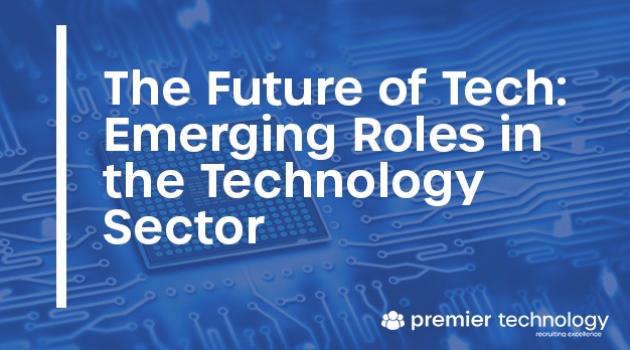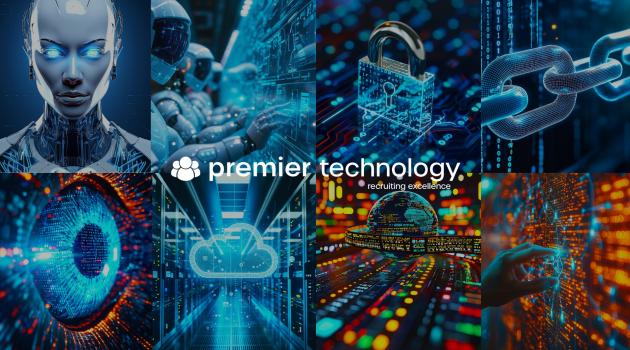The technology sector continues to be one of the most rapidly evolving industries, constantly redefining the professional landscape with an array of exciting new roles.
As artificial intelligence, machine learning, and cybersecurity advance, so does the demand for highly skilled individuals ready to navigate this dynamic environment.
Through our Technology Recruitment team, we are lucky to be heavily immersed in this vertical.
Let's explore some of the emerging roles in the technology sector and the skills required to excel in them:
An ethical expert in artificial intelligence (AI)
Ethical considerations are more important than ever as AI grows over the next decade to spread through different facets of our lives. These specialists require a thorough knowledge of AI technologies, as well as a solid grounding in ethics and, frequently, the law.
Engineer in quantum computing
The concept of quantum computing is no longer confined to just science fiction. This cutting-edge field is developing and holds the potential to completely change how we interpret information. On the cutting edge of technology, quantum computing engineers create quantum computers and algorithms. For these positions, a solid foundation in computer science, physics, and mathematics is essential.
Analyst for cybersecurity
There is an exponential increase in the risk of cyberattacks as more businesses migrate to digital platforms. The digital guardians, or cybersecurity analysts, are in charge of defending businesses against potential dangers. They recognise hazards, take steps to lessen them, respond to occurrences, and make sure security requirements are being followed. This position requires a thorough understanding of network and computer systems, data protection, and cybersecurity concepts.
Officer of Data Privacy
In our digital age, data has become a lucrative resource, which raises privacy concerns. Data privacy officers oversee an organisation's data collection, storage, and use while also ensuring that all privacy regulations are followed. They must be familiar with risk management, privacy laws and regulations, and data management and protection techniques.
Developer of virtual reality (VR)
Beyond gaming, VR technology is being used more and more in fields including healthcare, education, and real estate. Through the creation of 3D worlds and interactions, VR developers build immersive experiences. Usually, necessary are skills in 3D modelling, computer graphics, and programming languages.
Edge Computing Professional
Edge computing, which processes data closer to where it is created rather than depending on centralised cloud-based systems, is increasing in popularity as Internet of Things (IoT) devices proliferate. These systems are created and maintained by edge computing specialists, who boost efficiency. A solid foundation in cloud computing, network engineering, and data management are prerequisites for success in this position.
Ethereum Developer
Blockchain technology has gained attention as a result of the emergence of cryptocurrencies and decentralised finance. Blockchain developers craft the architecture of blockchain systems, design smart contracts, and create and optimise blockchain protocols. Data structures, cryptography, and certain programming languages are all necessary for this position.
Developer of augmented reality (AR)
By adding layers of digital information to our physical environment, augmented reality (AR) improves our interaction with the actual world. AR is being used in a variety of industries, including retail and remote employment. AR developers build AR applications, which require expertise in mobile development platforms, 3D modelling, and computer vision.
Engineer in machine learning
Engineers in machine learning create and construct machine learning systems, run sophisticated predictive models, and work with algorithms and data sets. For these positions, it is necessary to have a solid foundation in computer science, as well as knowledge of programming, statistics, and machine learning frameworks.
The Chief Transformation Officer
Firms have become more aware of the need for leadership that is explicitly centred on digital transformation. As a result, Senior Appointment Recruitment has seen the CTO position emerge. The CTO directs strategic decisions about technological investments and improvements and keeps an eye on how technology can support business objectives. This position requires extensive IT and business strategy experience, as well as leadership and change management abilities.
The future of tech is more than just a list of job titles – it's a testament to the industry's remarkable capacity for innovation and adaptation. The roles we've explored here today are just the tip of the iceberg. As technology continues to evolve, so too will the opportunities it presents.



